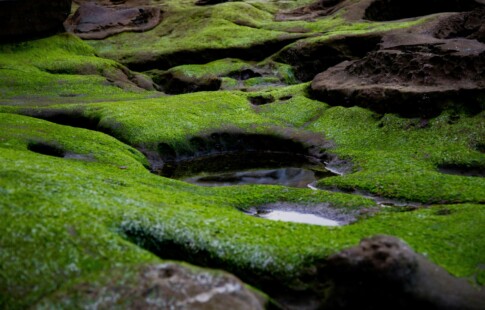
What Every Hiker Needs to Pack: 9 Essentials
We are reader-supported. When you buy through links on our site, we may earn affiliate commission.
Hiking is the ultimate exercise. It works your leg muscles like few other things, but that’s hardly the only benefit. You breathe in oodles of good things that benefit your immune function, and immersing yourself in nature works wonders to soothe your nerves. That said, the most pleasant day on the trail can quickly become a nightmare if you don’t have the right gear. What should you take on your next excursion? Here are nine essentials that every hiker needs to pack.
1. Water
Dehydration will ruin your hiking experience quicker than anything. You’ll get weak, suffer a pounding headache and feel dizzy and nauseous, making it difficult to stagger. Bring plenty of water — even if the weather seems nice and you don’t plan to stay out too long.
How much do you need? Compute it simply. Adults require about two cups of water for every hour on the trail. Children need between one and two cups, depending on their size.
Multiply that amount by the length of your hike, estimating on the generous side. Consider factors like weather conditions and your thirst levels.
2. Sun Protection
Bring sun protection, even if your skin isn’t prone to burn. Ozone depletion has increased UV ray intensity, making cancer more a threat.
A wide-brimmed hat with a scarf down the neck protects your delicate skin from the sun. A pair of glasses is a must, especially in areas where glare causes visual problems, like New Mexico’s white sands. Reapply sunscreen every two hours, more often if you sweat heavily.
3. A Compass
Your phone may have GPS. Your phone may also end up in a mud hole, waterlogged and non-functional. It pays to have an old-fashioned compass on a hike.
You don’t have to spend a lot. You can find quality versions for less than $20 at many outfitters. Look for models that come as part of a complete survival kit to get even more bang for your buck.
4. A Knife
A knife comes in handy for multiple purposes. It can help you cut a piece of a shirt to use as a tourniquet if someone gets hurt. You can hack down branches to make a simple structure if you get lost and have to weather a night outdoors. It strikes flint, producing a spark to start a fire.
Your best bet is a multi-purpose knife that contains other tools such as a bottle opener. If nothing else, it comes in handy for popping that champagne you brought on your midnight excursion with your sweetie.
5. Rope
You find out why every hiker needs a rope if you slide down the right slope. You could find yourself down on a ledge with little way to climb out.
Ropes also come in handy if one of your party gets injured. You can use them to assist when carrying a wounded person out of the backcountry.
6. Insect Repellent
Insect bites are more than mere annoyances on a hike. Pests like mosquitoes carry diseases like West Nile and the Zika virus.
Pack an insect repellent and apply it liberally. If you don’t like the scent or feel on your skin, look for a spray that you spritz on your gear, keeping bugs at bay.
7. Fire-Making Materials
You probably don’t set out for many hikes intending to spend the night in the woods. However, people get lost — and forests and deserts turn cold after dark. Plus, it’s comforting to have some light to keep animals at bay.
Matches offer convenience but can get wet. Your best bet is a simple fire-making kit with a blade and flint to make a spark.
8. An Emergency Blanket
Again, you might not relish the thought of an unplanned night in the woods. However, it’s better to be prepared if you get lost.
Lightweight emergency blankets fold into squares, fitting into your pocket or a fold of your backpack. Better yet, their reflective surfaces make it easier for rescuers to find you if other people report you missing.
9. Snacks
Finally, hiking is hungry work. Take along your favorite snacks, but please, remember — pack your wrappers out with you.
What should you take? Carnivorous types can chow down on jerky, a lean protein source synonymous with the trail. Those who prefer a plant-based diet can’t go wrong with a trail mix containing plenty of nuts for muscle power.
Dried fruit is another excellent choice. It provides a rapid energy source, as do many bars made for the purpose.
What Every Hiker Needs to Pack
Hiking offers physical fitness and mental stress relief. For many, it’s also a spiritual experience.
However, your time on the trail can turn sour if you don’t have the right gear when you need it. Stock up on these nine items that every hiker needs to pack.
Share on
Like what you read? Join other Environment.co readers!
Get the latest updates on our planet by subscribing to the Environment.co newsletter!
About the author

Steve Russell
Steve is the Managing Editor of Environment.co and regularly contributes articles related to wildlife, biodiversity, and recycling. His passions include wildlife photography and bird watching.





